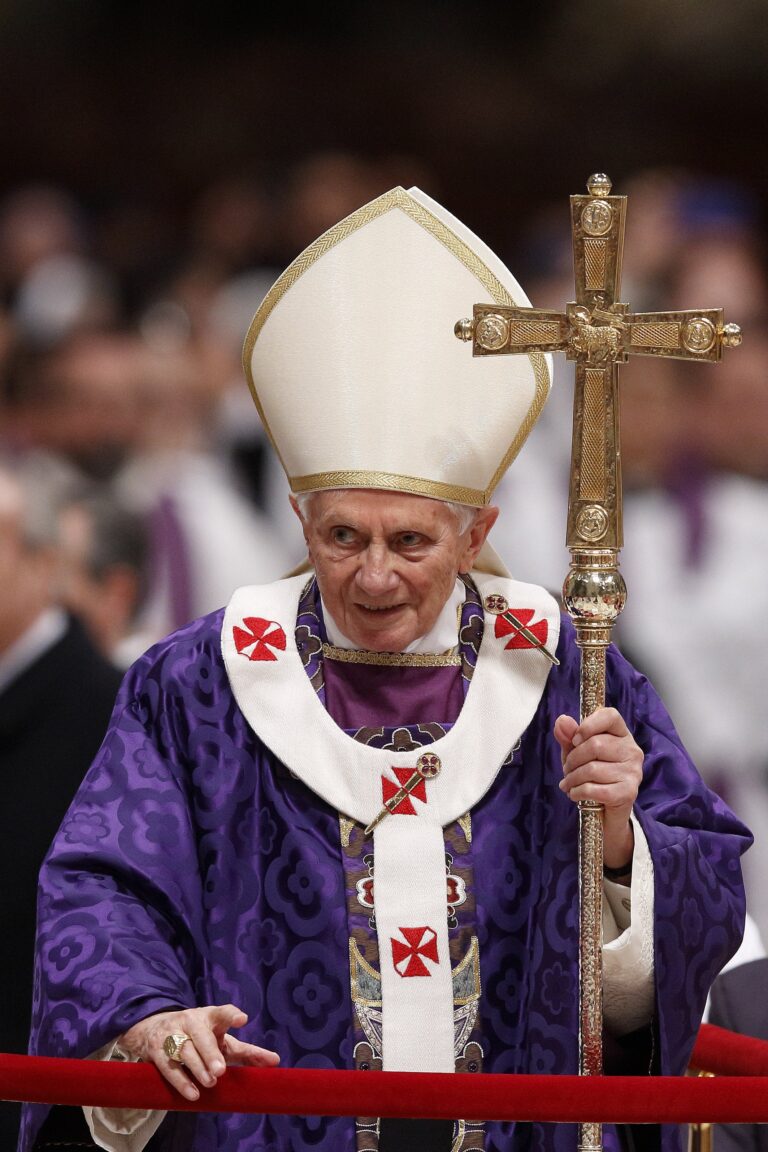Insomnia was apparently the decisive reason for Pope Benedict XVI’s resignation in February 2013. His biographer Peter Seewald confirmed the details – which appear in a report published in the magazine “Focus” – to the Catholic News Agency (KNA) on Friday.
According to the report, Benedict XVI revealed the “central motive” for his resignation from office in his last letter to Seewald on 28 October 2022, nine weeks before his death. In the letter he mentions “the insomnia that has accompanied me uninterruptedly since World Youth Day in Cologne.” The World Youth Day in Cologne took place in August 2005.
“Benedict XVI did not want to make a fuss during his lifetime about the intimate circumstances of his resignation, which was justified by his exhaustion,” Seewald told the KNA. Unfortunately, even after his death, speculation continues about possible other reasons for the move.
Blackmail
“Rumours of blackmail and pressure of some kind exerted on him have not died down,” said the Munich journalist. It is also been suggested that the “Vatileaks” affair was the real reason.
Seewald said that he therefore felt obliged to publish “the decisive detail entrusted to me from the German Pope’s medical history”.
“I hope that this will finally put the conspiracy theories and erroneous speculations to rest.” He said the resignation was for health reasons, “just as he expressed in his resignation statement”.
As early as 2010, during an interview for his book “Light of the World”, the then Pope had told Seewald “in no uncertain terms that he would make use of the option to resign as soon as his strength no longer permitted him to exercise the office of Peter. Unfortunately, hardly anyone took any notice of this.”
Seewald is the author of a new book entitled “Benedict’s Legacy”, published by Hoffmann und Campe, which is being published soon. The letter of 28 October 2022 could not be included in it “for reasons of time and production”, the author explained.
Strong remedies
In the letter, Benedict XVI writes that the “strong remedies” prescribed to him by his personal physician at the time had initially worked and guaranteed his “availability” as Pope. However, the medicines soon “reached their limits” and were “less and less able to ensure” his continued service.
Finally, during his trip to Mexico and Cuba in March 2012, there was a serious incident. The morning after the first night of the visit, Benedict said in the letter, he had reached for his handkerchief to find that it was “totally soaked with blood. I must have bumped into something in the bathroom and fallen.” A surgeon had “thankfully” managed to treat the matter in such a way that the injuries were not visible.
After this incident his new personal physician had urged a reduction in sleeping pills and insisted that Benedict only be allowed to appear in public on mornings during future trips abroad. According to Benedict, it was clear to him that these medically justified restrictions “could only apply for a short time”.
Cope
His next major foreign trip, to the World Youth Day in Rio de Janeiro, was to take place in July 2013. He had known that he would no longer be able to “cope” with this appointment, so he had planned his resignation to enable a “new Pope” to travel to Rio, Benedict said.
Benedict XVI emphasised in the letter that he had come to the decision to resign after “sober and thoughtful reflection”. At that time, he was no longer able to exercise the office appropriately.
Benedict XVI resigned as Pope on 28 February 2013. His successor Francis, elected on 13 March 2013, flew to Rio for World Youth Day. Benedict XVI died at the age of 95 on New Year’s Eve 2022.
Originally reported by KNA Germany.



